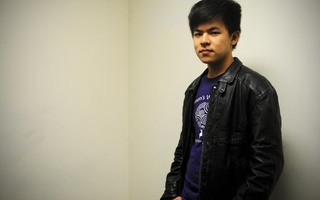Edith C. Benavides ’14 stood before the Undergraduate Council’s general meeting last month, clutching a camera and a rainbow flag. Benavides was there to take a photo of the Council for an upcoming celebration of National Coming Out Day.
She gave her standard introduction: Hi, my name is Edith, I’m an intern at the BGLTQ Office. My preferred gender pronouns are she, her, and hers.
To her surprise, Benavides was greeted by a chorus of snickers from the left half of the room.
“I had never gotten that reaction when I mentioned my preferred gender pronouns before,” said Benavides. “It lasted only two seconds, but I paused afterwards because I was so shocked.”
UC President Danny P. Bicknell ’13 said he immediately noticed the laughter. He said he explained gender pronouns to the representatives and told them that “it is never appropriate” to react in that manner.
“My experience personally showed me that it’s not all rainbows and smiles,” Benavides said. “I am in a world that is not entirely knowledgeable about things like this, and I have to be able to learn and teach.”
Lack of awareness is not unusual at the College, where students who fit outside the gender binary often have to explain that they would like to be referred to with a name or pronoun which may not reflect their assigned sex.
For these students, their preferred gender pronoun, or PGP, as it is often abbreviated, is not just a matter of preference; it’s a matter of identity.
Now, as the number of trans-identified students and staff on campus becomes more visible than it has been in recent years, the College is starting to take notice. Students say that the Harvard community has generally been receptive to incorporating preferred pronouns into icebreakers, and that this may pave the road for heightened sensitivity to broader trans issues.
PRONOUN PROGRESS
Jamie, a senior at the college who asked that their last name not be used so that future employers cannot discriminate against them based on their gender identity, decided to try on a gender-neutral name after hearing other students talk about their own identities.
“During coming out narratives, people were sharing stories and were very affirming of how they felt, coming out as trans,” Jamie said. “I realized that gender wasn’t this binary thing that I’d been thinking about.”
Jamie now prefers the non-gendered pronoun “they.”
According to Assistant Dean for Student Life Emelyn A. dela Peña, a PGP is “simply the pronoun that a person would like others to use when talking to or referring to that person.”
The pronoun reflects a person’s gender identity—the inner feeling of being a man or a woman, neither, or somewhere in between.
Read more in News
Student Dissertation Sticks to Schedule Despite Hurricane SandyRecommended Articles
-
 Tolerance at Harvard: Students Lag Behind Administration
Tolerance at Harvard: Students Lag Behind Administration -
Name, Year, House, PGP?Despite generally best intentions, Harvard is still not as trans-friendly a school as we could be.
-
The Harvard Crimson Style Guide: 2015 SupplementWe at The Harvard Crimson acknowledge the evolving nature of language, and as such we recognise the necessity of updating our comprehensive Style Guide to accommodate questions that have arisen over the past few years.
-
 UC Launches 'Side by Side' Gender Equality Campaign
UC Launches 'Side by Side' Gender Equality Campaign -
Students Indicate Preferred Gender Pronouns at RegistrationThe Faculty of Arts and Sciences’ registration tool now gives students the option to choose preferred gender pronouns.













